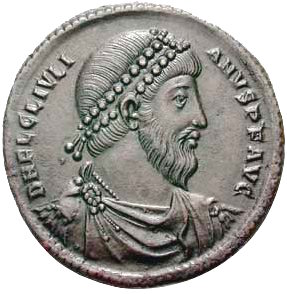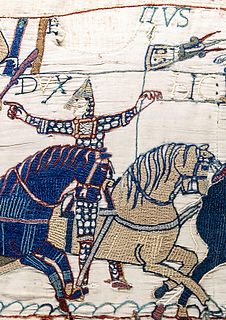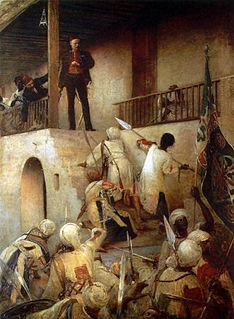See also
- Catherine Guy-Quint, a French politician
- Charles V, Holy Roman Emperor (1500-1558), also known as Charles Quint, ruler of the Spanish Empire and the Holy Roman Empire
Quint is a surname and a masculine given name. It may refer to:
Surname:
Given name:
Fictional characters:
Elias is the Greek equivalent of Elijah, a prophet in the Northern Kingdom of Israel in the 9th century BCE, mentioned in several holy books. Due to Elias' role in the scriptures and to many later associated traditions, the name is used as a personal name in numerous languages.
Pierre is a masculine given name. It is a French form of the name Peter. Pierre originally meant "rock" or "stone" in French. It is a translation of Aramaic כיפא (Kefa), the nickname Jesus gave to apostle Simon Bar-Jona, referred in English as Saint Peter. Pierre is also found as a surname.

Otto is a masculine German given name and a surname. It originates as an Old High German short form of Germanic names beginning in aud-, an element meaning "wealth, prosperity".
Maximilian, Maximillian or Maximiliaan is a male given name.

Julian is a common male given name in Germany, Australia, the United Kingdom, Ireland, the Netherlands, France, Italy, Russia [Iulian (Yulian)] Spain, Latin America, Iulian in Romanian and elsewhere.
Kowalski is the second most common surname in Poland. Kowalski surname is derived from the word kowal, meaning "[black]smith".

Eustace, also rendered Eustis, is the rendition in English of two phonetically similar Greek given names:
Ancient and noble French family names, Jacq, Jacques, or James are believed to originate from the Middle Ages in the historic northwest Brittany region in France, and have since spread around the world over the centuries. To date, there are over one hundred identified noble families related to the surname by the Nobility & Gentry of Great Britain & Ireland.
Nolan is both a surname and a given name, of Irish origin from Ó Nualláin, derived from Irish nuall meaning "noble, famous" combined with a diminutive suffix. People with the name include:

The name Basil comes from the male Greek name Vassilios, which first appeared during the Hellenistic period. It is derived from "basileus", a Greek word of pre-Hellenic origin meaning "king", "emperor" or "tzar", from which words such as basilica and basilisk as well as the eponymous herb basil derive, and the name of the Italian region Basilicata, which had been long under the rule of the Byzantine Emperor.
Miles is a male name from the Latin miles, a soldier. The medieval knight was called miles in Medieval Latin, while in Classical Latin, miles meant simply soldier of any sort, including infantry.

Sebastian is both a given name and a surname. It comes from the Greek name Sebastianos (Σεβαστιανός) meaning "from Sebastia" (Σεβάστεια), which was the name of the city now known as Sivas, located in the central portion of what is now Turkey; in Western Europe the name comes through the Latinized intermediary Sebastianus. The name of the city is derived from the Greek word σεβαστός (sebastos), "venerable", which comes from σέβας (sebas), "awe, reverence, dread", in turn from the verb σέβομαι (sebomai), "feel awe, scruple, be ashamed". Sebastos was the Greek calque of the title Augustus, which was used for Roman emperors. Sebastian became a widely used name because it was the name of Saint Sebastian, a third-century Christian martyr.

Marcus is a masculine given name of Ancient Roman pre-Christian origin derived either from Etruscan Marce of unknown meaning or referring to the god Mars. Because Mars was identified as the Roman god of War, the name 'Marcus' can by extension be taken to refer to Ares in the Greek pantheon.
Barlow is an English surname.
Eugene is a common masculine given name that comes from the Greek εὐγενής (eugenēs), "noble", literally "well-born", from εὖ (eu), "well" and γένος (genos), "race, stock, kin". Gene is a common shortened form. The feminine variant is Eugenia or Eugenie.

Roman is a masculine given name that originated within the Roman Empire, via Latin and sequentially the Greek language. In its initial sense, the title "Roman", denotes a member of the Roman Empire, or belonging to or identifying with Roman culture. It most likely evolved from Romulus, the legendary co-founder of Rome. It can also be an ancient Germanic given name, derived from Proto-Germanic *Hrōþi- "famous" and *mann "man" (Hrōþimannaz). It's sometimes also used as a literal translation of the name Robert.
Lambert is an English and French given name and surname. It is from the Low German form of the anthroponymic name Landberht from the Old High German land "(home) land" and beraht "bright".
Kim is a male and female unisex given name. It is also used as a diminutive or nickname for names such as Kimber, Kimberly, Kimberley, Kimball and Kimiko. In Kenya it is short for various male names such as Kimutai and Kimani.

Gordon is a masculine given name in the English language. The name is derived from the Scottish surname Gordon. It is uncertain if this surname originated from a place name in Scotland or in France. The Gordon in Berwickshire, where the family who bore the surname held lands in the 12th century, is of uncertain etymology. It is also possible that this place name was named after settlers from France, who were named after a like-named place in Normandy. The surname is thought to have been taken up as a given name in honour of the Major-General Charles George Gordon, a British army officer who was killed in 1885, in Khartoum.
Maurice is a traditionally masculine given name, also used as a surname. It originates as a French name derived from the Latin Mauritius or Mauricius and was subsequently used in other languages. Its popularity is due to Mauritius, a saint of the Theban Legion. Mauritius is otherwise attested as a given name of the Roman Empire period, in origin meaning "one from Mauritania", i.e. "the Moor".